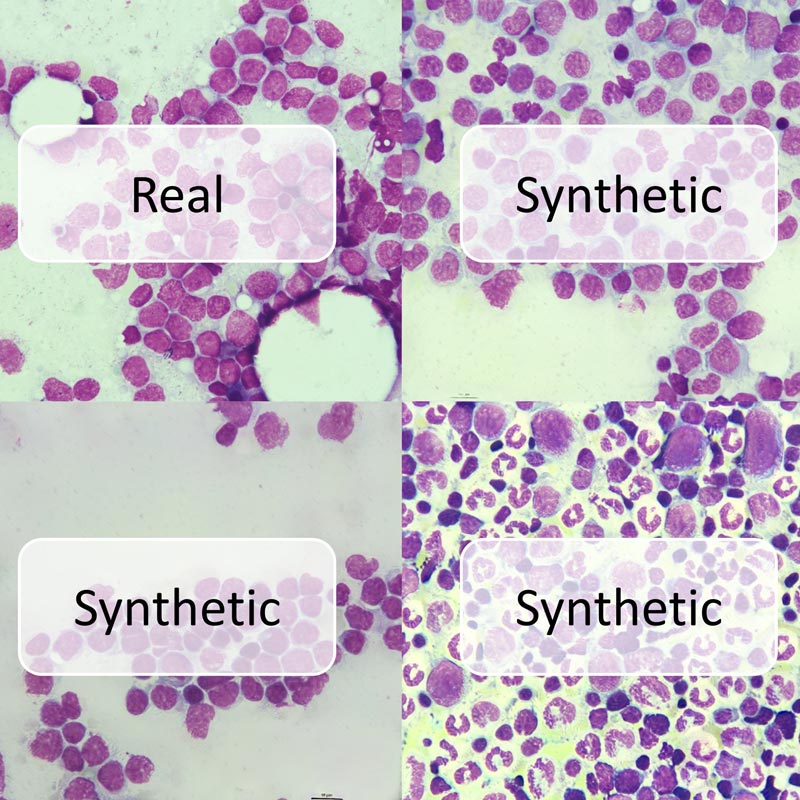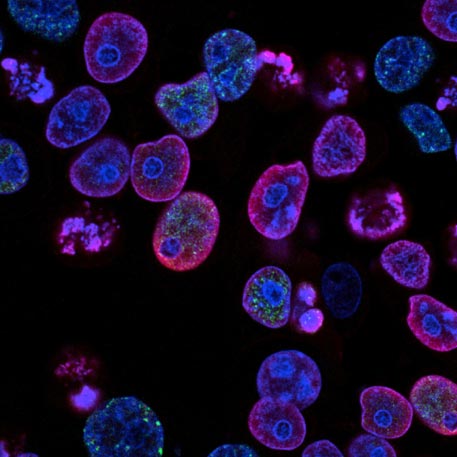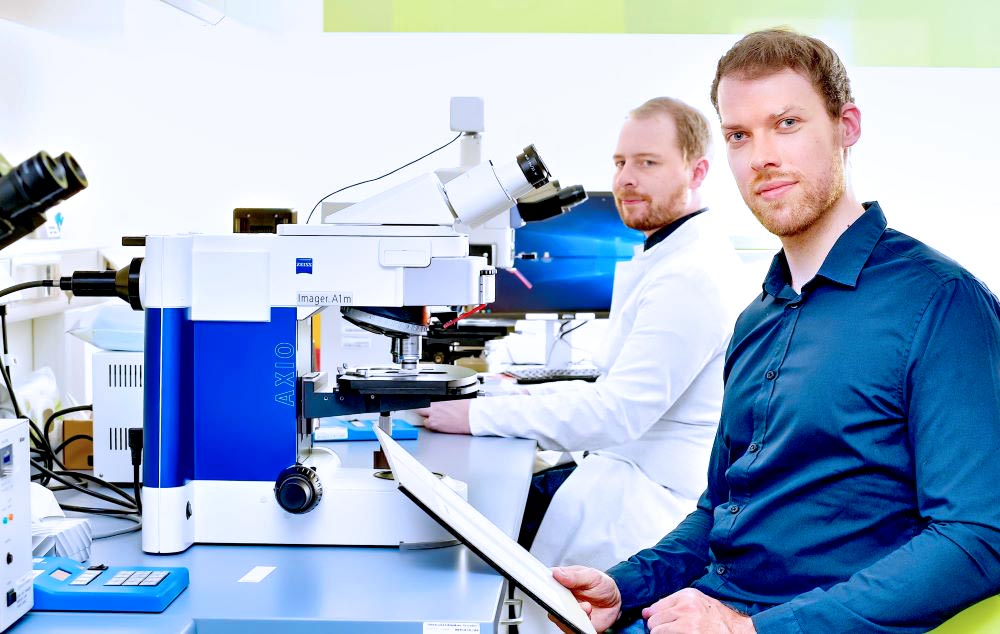Generative Modeling is a fascinating branch of Deep Learning that has shown tremendous capabilities in media generation over the last few years.
Medical data is often hard to obtain and often data access is restricted due to safety and privacy issues. However, generating large data sets that are publicly available will be paramount in developing robust models for clinical use.
We use real patient data to train Generative Adversarial Networks (GANs) in order to create huge samples of synthetic data that closely mimick the underlying distributions of the parent data sets. GANs can be applied to both image data from bone marrow smears (see below) and clinical data from large-scale clinical trials in tabular format with tremendous results. Such data can be freely shared and multiplied and give researchers around the globe easy access to large training cohorts for model development or testing.

Further, synthetic data heralds a new era of clinical trials where the effect of a novel agent can be tested in silico against custom-made synthetic controls before embarking on the long and cost-intensive journey of a full-scale prospective trial.
Currently, we received funding by the Else-Kröner-Fresenius Foundation to investigate how synthetic patients can augment clinical trials and provide new solutions towards precision medicine.
References
Eckardt JN et al. Mimicking clinical trials with synthetic acute myeloid leukemia patients using generative artificial intelligence. NPJ Digit Med. 2024
https://www.nature.com/articles/s41746-024-01076-x
Eckardt JN et al. Synthetic bone marrow images augment real samples in developing acute myeloid leukemia microscopy classification models. NPJ Digit Med. 2025
https://www.nature.com/articles/s41746-025-01563-9



